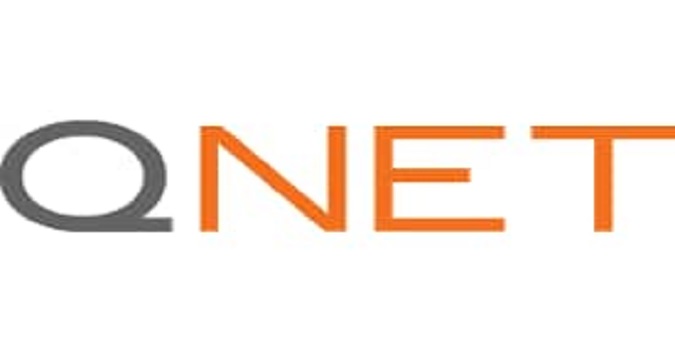Broadcasting
SERAP Sues FG over Ban on Twitter Use by Broadcast Stations

Socio-Economic Rights and Accountability Project (SERAP) has sued Muhammadu Buhari and Lai Mohammed, his minister of information and culture, for alleged patently unlawful directive to all TV and radio stations not to use Twitter, and to delete their accounts.

SERAP is praying the Federal High Court in Abuja to stop the two politicians, saying that the directive was a pretext to harass, intimidate, suspend or impose criminal punishment on journalists and broadcast stations simply for using social media platforms.
The suit followed the order by the National Broadcasting Commission (NBC) asking TV and radio stations to “suspend the patronage of Twitter immediately”.
NBC also told them to delete ‘unpatriotic’ Twitter, after the social media giant was banned in the country for deleting President Muhammadu Buhari’s tweet.
In the suit number FHC/ABJ/CS/496/2021 filed last Friday, SERAP is seeking: “an order of perpetual injunction restraining the government of President Buhari, the NBC, and Mr Lai Muhammed and any other persons from censoring, regulating, licensing and controlling the social media operations and contents by broadcast stations, and activities of social media service providers in Nigeria.”
SERAP is also seeking “an order setting aside the directive by NBC and Mr Lai Muhammed asking broadcast stations to stop using Twitter, as it is unconstitutional, unlawful, inconsistent and incompatible with the Nigerian Constitution of 1999 [as amended], and the country’s obligations under the African Charter on Human and Peoples’ Rights and the International Covenant on Civil and Political Rights.”
SERAP is arguing that “the government of President Buhari, the NBC and Mr Lai Muhammed have consistently made policies and given directives to crack down on media freedom, and the rights of Nigerians to freedom of expression and access to information, and to impose crippling fines and other sanctions on broadcast stations without any legal basis whatsoever.”
“The court has an important role to play in the protection and preservation of the rule of law to ensure that persons and institutions operate within the defined ambit of constitutional and statutory limitations.”
“Where agencies of government are allowed to operate at large and at their whims and caprices in the guise of performing their statutory duties, the end result will be anarchy, licentiousness, authoritarianism and brigandage leading to the loss of the much cherished and constitutionally guaranteed freedom and liberty.”
“By using the National Broadcasting Act and the Nigeria Broadcasting Code to stop broadcast stations from using Twitter without recourse to the court, the NBC and Mr Lai Muhammed have contravened the right to access to justice and fair hearing guaranteed under sections 6[1] & [6][b] and 36[1] of the Nigerian Constitution 1999, and articles 1 and 7 of the African Charter on Human and Peoples’ Rights.”
The suit was filed on behalf of SERAP by Kolawole Oluwadare, Kehinde Oyewumi and Opeyemi Owolabi its lawyers.
SERAP and 176 Nigerians have also sued Buhari in the ECOWAS Court of Justice over the Twitter ban.
Broadcasting
AI and Cybersecurity: Balancing Innovation with Caution

By Aaron Bugal, Field CTO APJ, Sophos
Undoubtedly one of the most influential technologies in recent decades, the ascent of artificial intelligence has produced a mixture of reactions from individuals, organisations, and countries. Eyes widen as we explore its potential, concerns grow as it threatens jobs, and conversations take place at a global level on how it should be regulated. However, for cybersecurity professionals artificial intelligence presents a double-edged sword.

Aaron Bugal, Field CTO APJ, Sophos –
Although AI has shown the ability to enhance cybersecurity solutions with its pattern recognition, summarisation, and assistance capabilities, it also opens the door for threat actors to harness the technology in much more sinister ways. So, in a world where we are in a constant race to out-innovate cybercriminals, what impact will AI have, especially as it continues to evolve itself?
New technologies mean new threats
Cybercriminals have proven they shouldn’t be underestimated. They are continually updating their tactics, strategies, and tools to breach businesses, and AI only strengthens their arsenal. AI has commonly been used to help threat actors better imitate real people – altering voices, pictures, and messages to carry out convincing phishing attacks.
Beyond mimicking human behaviour, cybercriminals have begun to experiment with AI at a more technical level. Malicious GPTs have been advertised on cybercriminal marketplaces, with functions such as automated penetration testing or malicious malware development.
However, sharing a similar experience to legal industries and businesses, there is still some hesitance from cybercriminals when it comes to implementing the technology into operations, as threat actors are mainly exploring generative AI in the context of experimentation and proof-of-concepts.
This does not mean organisations should see this as a sign to slow down, as artificial intelligence will inevitably become a regular feature of cyber attacks. Instead, businesses should be evaluating if they are using the technology in a secure and optimal way within their cybersecurity set up.
AI adoption is not about being first, but being smart
Businesses of all sizes are examining how AI can be used, with Sophos finding 98 per cent of organisations are using it within their cybersecurity infrastructure in at least some capacity. Further to this, 65 per cent of organisations use cybersecurity solutions that include generative AI capabilities, and 73 per cent use solutions that include deep learning models.
While AI adoption in cybersecurity can bring many advantages, it also introduces a number of risks if approached incorrectly. Poorly implemented AI models can inadvertently introduce considerable cybersecurity risks of their own – if it isn’t provided with the right inputs, it cannot provide adequate outcomes. Organisations are alert to this risk, with the vast majority (89%) of cybersecurity professionals saying they are concerned about how potential flaws in cybersecurity tools’ generative AI capabilities will harm their organisation, with 43 per cent highlighting they are extremely concerned.
This alertness must also remain for AI that’s implemented in non-cybersecurity related tools, as emerging technologies pose threats in their infancy. Agentic AI for example has become highly topical recently, but will a technology that learns from humans be able to adequately defend itself from cyber threats? At its current level, AI should be approached with the intention that it can serve a single purpose and expecting an individual system or ‘AI agent’ to do everything with minimal human interference is risk inducing.
Therefore, an organisation’s artificial intelligence advances – both within cybersecurity infrastructure and its entire technology stack – must be done with guardrails up and thorough oversight.
Fighting fire with fire without getting burnt
In an ongoing race against cybercriminals, artificial intelligence will only become a multiplier to innovation that takes place on both sides. For businesses, avoiding the risks of AI within cybersecurity systems is possible when implementation is approached with care. This can be achieved through:
· Inquiring about vendor’s AI capabilities: AI requires transparency, and asking cybersecurity vendors about how their data is trained, what AI expertise their professionals have, and their roll out process for deploying AI capabilities will help paint a clearer picture of AI development best practices.
· Providing strict outlines to AI investment: AI investment cannot be rushed, so it is important to assess whether AI provides the best solution for current cybersecurity challenges, prioritise specific AI investments, and measure the impact of AI once it is implemented into cybersecurity infrastructure.
· Remain human first in AI adoption. Organisations should never take a set-and-forget approach to cybersecurity, and this is even more the case when AI is involved. Ultimately, cybersecurity is a human responsibility, and AI should be used as an accelerant to support cybersecurity professionals, not a replacement.
Artificial intelligence will become a mainstay within organisations for many years to come. This is no different for cybersecurity, however with such high stakes it is vital that AI is used correctly, or it will only work against its intended purpose – giving cybercriminals the leg up over organisations in this ongoing battle. It is not about implementing a range of AI capabilities to expand your cybersecurity infrastructure, but the right capabilities that address your cybersecurity needs.
Broadcasting
QNET Reaffirms Integrity: Dissociates from Mighty Infinity Millionaire Ltd in Nigeria

QNET, a global leader in direct selling focused on wellness and lifestyle products, firmly disassociates itself from any unlawful activities being conducted by unauthorized individuals or entities fraudulently using the QNET name to mislead and exploit members of the Nigerian public.

These concerns have resurfaced following the arrests of several suspects in Niger State and the Federal Capital Territory, Abuja.
QNET commends the Economic and Financial Crimes Commission (EFCC) for its actions in apprehending those responsible and is actively supporting the authorities to prevent further misuse of its brand.
QNET Says NO to Brand Misuse and Criminal Misrepresentation
QNET is a 27-year-old international direct selling company offering wellness and lifestyle products through a network of independent distributors.
These individuals are customers who have purchased QNET products and have chosen to build their own direct selling business using our platform. They operate independently and are not employees of QNET.
Unfortunately, certain third-party entities such as Mighty Infinity Millionaire Ltd, that have no affiliation to QNET, and operate without our oversight or recognition, have grossly misrepresented the QNET business model and acted in a manner that is in no way a representation of QNET business ethics or values.
We unequivocally state that such entities and individuals are not affiliated with or endorsed by QNET. QNET reiterates that Transblue Nigeria Limited remains our sole partner in Nigeria.
Operating Within Legal and Ethical Boundaries
In Nigeria, QNET operates strictly within the legal and regulatory frameworks through our official local partner, Transblue Nigeria Limited. We remain committed to ethical business practices and protecting both our brand and the public from exploitation. We urge members of the public to remain vigilant, verify the authenticity of individuals or entities claiming affiliation with QNET, and report any suspicious activity to the appropriate authorities.
Statement from QNET’s Regional Leadership & Legal Nigerian Partner
Responding to the fraudulent activities being perpetrated in QNET’s name, Biram Fall, Regional General Manager of QNET for Sub-Saharan Africa, states, “We are extremely disturbed by the way unscrupulous individuals have misused the QNET brand to deceive innocent Nigerians with false promises. At QNET, our values are rooted in honesty and empowering people to build better lives through genuine means. We remain committed to supporting law enforcement agencies in their efforts to bring these fraudsters to justice and encourage the public to verify any claims of affiliation with QNET before getting involved.”
To avoid further confusion, QNET wishes to emphasize the following:
● QNET does not operate or endorse any physical or online university under the name “Q-University” in Nigeria. QNET is part of a larger business conglomerate that operates the Quest International University in Malaysia, which does not have any overseas campus.
● QNET is not involved with online medical courses or academic institutions in Nigeria.
● QNET does not support or condone recruitment-driven models that promise employment, scholarships, or guaranteed returns unrelated to the legitimate sale or purchase of QNET products.
● QNET strongly condemns the unauthorized use of our intellectual property – including company logos, founder portraits, and promotional materials – by fraudulent actors aiming to mislead the public.
QNET’s Awareness Creation and Consumer Protection Efforts
Since entering the Nigerian market in 2022, QNET with the support of our local partner, Transblue Nigeria Limited, have prioritized financial literacy and consumer protection. In November 2023, we launched the Say NO! Awareness Campaign to educate the public about scams and promote responsible entrepreneurship. The campaign has reached thousands through multilingual billboards, radio messages, educational pamphlets, and online platforms. As part of this campaign, the Federal Ministry of Labour and Employment (FMLE) and the Lagos State Consumer Protection Agency (LASCOPA) were also engaged.
Cooperation with Law Enforcement
QNET expresses its full support and appreciation for the EFCC’s efforts to protect citizens and crack down on cyber and financial crimes. We are actively cooperating with the Commission in its investigations and are committed to further educating the public on the nature and values of QNET’s legitimate operations.
Public Advisory: How to Stay Safe
To protect yourself from scams falsely linked to QNET:
● Verify all QNET-related information at: www.qnet.net
● Report suspicious activity via email: network.integrity@qnet.net or WhatsApp: +233 256 630 005
● Learn how to identify scams at: www.saynocampaign.org
QNET remains fully committed to ethical business practices and transparency. We stand with Nigerian authorities in protecting citizens from fraud and will continue to cooperate fully to bring those misusing our brand to justice.
Broadcasting
Eedris Abdulkareem Teases New Protest Anthem following NBC Ban

Eedris Abdulkareem, veteran hip hop artiste, is showing no signs of backing down as he hints at releasing another protest song, shortly after his last track was banned by the National Broadcasting Commission (NBC).

Eedris Abdulkareem, veteran hip hop artiste
He recently again stirred the political waters as he hinted at the release of a new protest song, only weeks after his controversial track Tell Your Papa was banned by the National Broadcasting Commission.
The outspoken musician took to social media on Wednesday, April 16, 2025, to share an animated cover design with the words “3 Arms of Government,” suggesting the theme of his upcoming release.
Though the title remains undisclosed, the post was captioned simply with “Stay tuned,” fueling speculation that another hard-hitting social commentary is on the way.
Abdulkareem, known for his unapologetic political views, recently described the NBC’s decision to ban Tell Your Papa as hypocritical. Undeterred by censorship, he appears set to continue using music as a platform to criticize injustice and demand accountability.
The rapper also recently reaffirmed the relevance of his classic hit Jaga Jaga, stating that it would remain the country’s “second unofficial national anthem” until key issues like security, electricity, and governance are addressed.
With another protest song on the horizon, fans and critics alike are bracing for what may be Eedris Abdulkareem’s most direct political message yet.

 Telecom2 days ago
Telecom2 days agoMTN Appoints Egerton Idehen as Chief Broadband Officer

 General News2 days ago
General News2 days agoUBA Marks 75 Years of Excellence at 65th AGM

 Telecom2 days ago
Telecom2 days agoDigital Realty Expands ServiceFabric to Nigeria, Enhancing Global Interconnectivity

 Telecom2 days ago
Telecom2 days agoMTN Group Suffers Cyberattack

 Telecom2 days ago
Telecom2 days agoMTN Foundation Launches Skills Academy to Bridge Nigeria’s Digital Skills Gap

 Telecom2 days ago
Telecom2 days agoLegend Internet Plc Makes History as First Indigenous Telecom Firm on NGX
- Telecom2 days ago
Tribunal Upholds FCCPC’s $220m Fine against Meta, WhatsApp

 E-Financial2 days ago
E-Financial2 days agoWorld Bank Predicts Rise of Poverty in Nigeria Despite Economic Growth


























